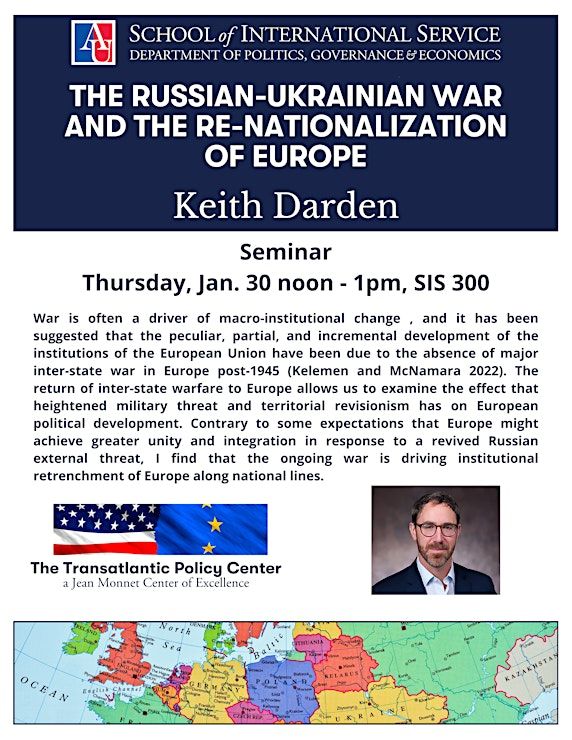
About this Event
War is often a driver of macro-institutional change (Tilly 1975), and it has been suggested that the peculiar, partial, and incremental development of the institutions of the European Union have been due to the absence of major inter-state war in Europe post-1945 (Kelemen and McNamara 2022). The return of inter-state warfare to Europe allows us to examine the effect that heightened military threat and territorial revisionism has on European political development. Contrary to some expectations that Europe might achieve greater unity and integration in response to a revived Russian external threat, I find that the ongoing war is driving institutional retrenchment of Europe along national lines. The emerging re-armament of European states has privileged national actors and national systems of military procurement, with incentives counter to deeper European integration of armed forces and European military procurement. Military assistance for Ukraine and for EU member states has primarily been provided through US-coordinated bilateralism rather than European multilateralism or supranationalism. Finally, the war itself has increased the salience of national identity and the normative appeal of nationalism in ways that work against European institutions and will likely put limits on deeper European integration even in an environment of greater military threat. These preliminary findings suggest that, as with other macro-institutional processes (e.g. state-building), existential threat interacts with identity variables to produce institutional outcomes.

Event Venue & Nearby Stays
School of International Service, SIS 300, Nebraska Avenue Northwest, Washington, United States
USD 0.00












